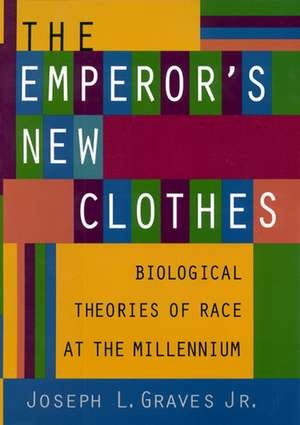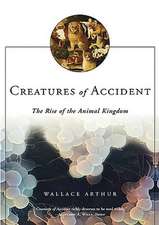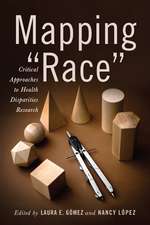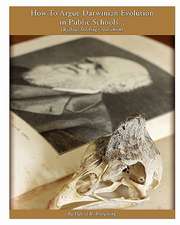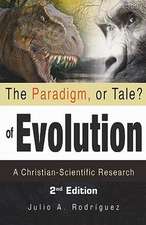The Emperor's New Clothes: Biological Theories of Race at the Millennium
Autor Joseph L. Graves Jr.en Limba Engleză Paperback – 22 ian 2003
In this groundbreaking book, Joseph Graves traces the development of biological thought about human genetic diversity. Greek philosophy, social Darwinism, New World colonialism, the eugenics movement, intelligence testing biases, and racial health fallacies are just a few of the topics he addresses.
Graves argues that racism has persisted in our society because adequate scientific reasoning has not entered into the equation. He champions the scientific method and explains how we may properly ask scientific questions about the nature of population differentiation and how (if at all) we may correlate that diversity to observed human behavior. He also cautions us to think critically about scientific findings that have historically been misused in controversies over racial differences in intelligence heritability, criminal behavior, disease predisposition, and other traits.
According to Graves, this country cannot truly address its racial problems until people understand the empirical evidence behind this truth that separate human races do not exist. With the biological basis for race removed, racism becomes an ideology, one that can and must be deleted.
Graves argues that racism has persisted in our society because adequate scientific reasoning has not entered into the equation. He champions the scientific method and explains how we may properly ask scientific questions about the nature of population differentiation and how (if at all) we may correlate that diversity to observed human behavior. He also cautions us to think critically about scientific findings that have historically been misused in controversies over racial differences in intelligence heritability, criminal behavior, disease predisposition, and other traits.
According to Graves, this country cannot truly address its racial problems until people understand the empirical evidence behind this truth that separate human races do not exist. With the biological basis for race removed, racism becomes an ideology, one that can and must be deleted.
Preț: 314.72 lei
Nou
Puncte Express: 472
Preț estimativ în valută:
60.22€ • 64.40$ • 50.21£
60.22€ • 64.40$ • 50.21£
Carte tipărită la comandă
Livrare economică 17 aprilie-01 mai
Preluare comenzi: 021 569.72.76
Specificații
ISBN-13: 9780813533025
ISBN-10: 0813533023
Pagini: 272
Dimensiuni: 152 x 229 x 18 mm
Greutate: 0.36 kg
Ediția:None
Editura: Rutgers University Press
Colecția Rutgers University Press
ISBN-10: 0813533023
Pagini: 272
Dimensiuni: 152 x 229 x 18 mm
Greutate: 0.36 kg
Ediția:None
Editura: Rutgers University Press
Colecția Rutgers University Press
Notă biografică
Joseph L. Graves Jr. is the author of The Race Myth. He is University Core Director and professor of biological sciences at Farleigh Dickinson University in Teaneck, New Jersey.
Cuprins
Preface
Acknowledgements
Introduction
Part 1 The Origin of the Race Concept
Chapter 1
Chapter 2
Chapter 3
Part 2 Darwin and the Survival of Scientific Racism
Chapter 4
Chapter 5
Chapter 6
Part 3 Applications and Misapplications of Darwinism
Chapter 7
Chapter 8
Chapter 9
Part 4 Biological Theories of Race at Millennium
Chapter 10
Chapter 11
Conclusion
Appendices
Notes
Bibliography
Index
Acknowledgements
Introduction
Part 1 The Origin of the Race Concept
Chapter 1
Chapter 2
Chapter 3
Part 2 Darwin and the Survival of Scientific Racism
Chapter 4
Chapter 5
Chapter 6
Part 3 Applications and Misapplications of Darwinism
Chapter 7
Chapter 8
Chapter 9
Part 4 Biological Theories of Race at Millennium
Chapter 10
Chapter 11
Conclusion
Appendices
Notes
Bibliography
Index
Recenzii
The author's main purpose is to show that the concept of race is a social construct that has no scientific basis. This is apparently now generally understood by the scientific community, but has not yet properly penetrated the understanding of the general public. This is the fundamental moral challenge that Graves put to the U.S. as its prime task in the millennium. His book is clear, readable, and ideal for first-year students.
Intellectually delightful, and at times deeply moving, this book's fundamental thesis is of outstanding importance. The biological non-existence of race is one of the most liberating messages that the American public will hear in a long time. It should be read by anybody who is a registered voter in the United States.
Evolutionary biologist Joseph Graves Jr. sets out to show that scientific, not political, correctness underlies the critique of the race concept, and argues that æthere is no biological basis for separation of human beings into race.' . . . The Emperor's New Clothes is a valuable study, and critique, of the concept of race. It is a pity that such books remain necessary.
What is the basis for separation of humans into races? Is it biological (i.e., genetic), or is it physical (i.e., phenotypic) and sociological? Depending on the answers, can racism be supported biologically? Graves has posed answers to these questions that could revise the ways in which humans interact with one another. With scientific training in genetics and the molecular biology of evolution, Graves has the background to speak meaningfuly to these questions. . . . For anyone interested in human interaction. All levels.
A concise history of the origin and evolution of the idea of race, the development of the science of classification and ranking of human types/races, and the persistence of racial ideology and science. Graves concludes that race is a social construct that was given power by science. When the myth of biological races is smashed, biological differences cease to be an excuse for inequality, and racism is exposed.
A book declaring that biological races do not exist and that the concept of race æwas socially constructed, arising from the colonization of the New World and the importation of slaves, mainly from western Africa' merits a salute right off the bat. . . . Joseph L. Graves Jr., is a laboratory geneticist, and he has made his case based on solid science, not on feel-good social motivations. . . . Graves is a laboratory scientist. His grasp of science and use of up-to-date sources put his presentation on a rock-solid basis. . . . The Emperor's New Clothes is a fine start for thinking about race at the dawn of the new millennium.
Intellectually delightful, and at times deeply moving, this book's fundamental thesis is of outstanding importance. The biological non-existence of race is one of the most liberating messages that the American public will hear in a long time. It should be read by anybody who is a registered voter in the United States.
Evolutionary biologist Joseph Graves Jr. sets out to show that scientific, not political, correctness underlies the critique of the race concept, and argues that æthere is no biological basis for separation of human beings into race.' . . . The Emperor's New Clothes is a valuable study, and critique, of the concept of race. It is a pity that such books remain necessary.
What is the basis for separation of humans into races? Is it biological (i.e., genetic), or is it physical (i.e., phenotypic) and sociological? Depending on the answers, can racism be supported biologically? Graves has posed answers to these questions that could revise the ways in which humans interact with one another. With scientific training in genetics and the molecular biology of evolution, Graves has the background to speak meaningfuly to these questions. . . . For anyone interested in human interaction. All levels.
A concise history of the origin and evolution of the idea of race, the development of the science of classification and ranking of human types/races, and the persistence of racial ideology and science. Graves concludes that race is a social construct that was given power by science. When the myth of biological races is smashed, biological differences cease to be an excuse for inequality, and racism is exposed.
A book declaring that biological races do not exist and that the concept of race æwas socially constructed, arising from the colonization of the New World and the importation of slaves, mainly from western Africa' merits a salute right off the bat. . . . Joseph L. Graves Jr., is a laboratory geneticist, and he has made his case based on solid science, not on feel-good social motivations. . . . Graves is a laboratory scientist. His grasp of science and use of up-to-date sources put his presentation on a rock-solid basis. . . . The Emperor's New Clothes is a fine start for thinking about race at the dawn of the new millennium.
Descriere
In this groundbreaking book, Joseph Graves traces the development of biological thought about human genetic diversity. Greek philosophy, social Darwinism, New World colonialism, the eugenics movement, intelligence testing biases, and racial health fallacies are just a few of the topics he addresses. Graves argues that racism has persisted in our society because adequate scientific reasoning has not entered into the equation.
